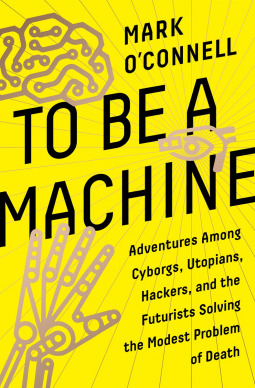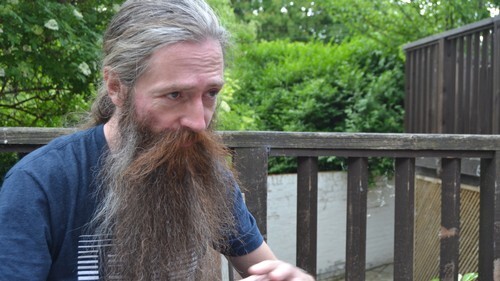What do you think?
Rate this book


256 pages, Hardcover
First published February 1, 2017

"I talked about my son, and how my love for him was largely, even fundamentally, a bodily experience, a mammalian phenomenon. When I held him in my arms, I said, I felt his smallness, his compactness, the slender bones of his little shoulders, and I experienced the softness and delicateness of his neck as a physical sensation, a tender swelling, a quickening in the machinery of the heart. I often found myself marveling at how little space he took up in the world, how his chest was no wider than the span of my hand, how he was literally a small object, an arrangement of fragile bones and soft flesh and warm unknowable life. And it was this that constituted my love, my animal anxiety and affection for him, little beast that he was."
4,5* Interessante, preoccupante, divertente, ironico.
Voi non lo sapete, ma là fuori c’è dio. Mica uno solo a dire il vero, ce ne sono diversi, ognuno con una sua idea per realizzarlo ma con uno scopo comune: eliminare la malattia, allungare la vita umana, fino a numeri con 4 cifre, fino all’infinito. In sostanza, eliminare la morte.
Alcuni fanno la guardia a impianti di crioconservazione dove corpi di ricchi signori morti aspettano di venire resuscitati quando la scienza riuscisse a guarire le loro malattie, o teste surgelate in attesa che, sempre la scienza, sappia come estrapolare le loro menti e uplodarle (scusate!) in un supporto magnetico che ne replichi le loro esistenze. Altri vogliono sostituire man mano i pezzi che si deteriorano con l’età per semplificare i problemi di salute delle persone e allungarne la speranza di vita fino a limiti estremi; in fondo le protesi bioniche già ci sono, che problema etico ci sarebbe a trasferire tutta la persona in un robot che non conosce problemi di colesterolo, ictus, infarti? Le idee sono molteplici: basta stiracchiare un po’ quello che già c’è per eliminare del tutto la morte. Ce la faranno? L'autore (e io lettrice) ne dubita molto e il libro scorre in modo molto interessante, affascinante, ironico, fra laboratori in scantinati e scienziati indipendenti o in laboratori asettici proprietà di fior di multinazionali che investono montagne di quattrini in queste ricerche, con loro laboratori e società oppure sovvenzionando strani personaggi (molto strani) che ci lavorano per conto loro. Vediamo di non dormire troppo tranquilli: una di queste aziende si chiama Google.
Strani personaggi:
aubrey de grey (foto Alessandra Antolini)
Katy and Todd Huffman (foto Aaron Muszalski, From Wikimedia Commons)
E sarà meglio che si sbrighino perché il surriscaldamento terrestre e la sesta estinzione di massa galoppano. Inoltre, in che mondo vivremo (vivranno) gli immortali? Riusciranno a convincere il sole a non diventare una nana bianca?
E la sovrappopolazione (la gente continuerà a riprodursi anche da millenaria)? O nei progetti diventeranno immortali solo 4 gatti molto ricchi, quindi il problema non si porrà? Varie ed eventuali. Tante varie ed eventuali. D’accordo, la morte è una grossa rottura di scatole, ma considerare le leggi della termodinamica come fastidiose seccature porterà poco lontano.
Comunque, nel 2015 un tal Zoltan Istvan ha girato per tutti gli States con un enorme camper a forma di bara (o di grosso stronzo, come ha chiosato un giovane scettico), l'immortality bus, in campagna elettorale: voleva diventare presidente degli Sates, con il programma di investire mucchi di soldi statali per battere la morte. Come si è visto non ce l’ha fatta. Peccato, ce l’ha fatta un tizio altrettanto svitato e ben più pericoloso.
Immortality bus
Peraltro, perché tutta questa fatica? Esiste già la vita eterna, da trascorrere seduti su una nuvoletta cantando cori con gli angeli o seduti sulle ginocchia di Satana, basta crederci.